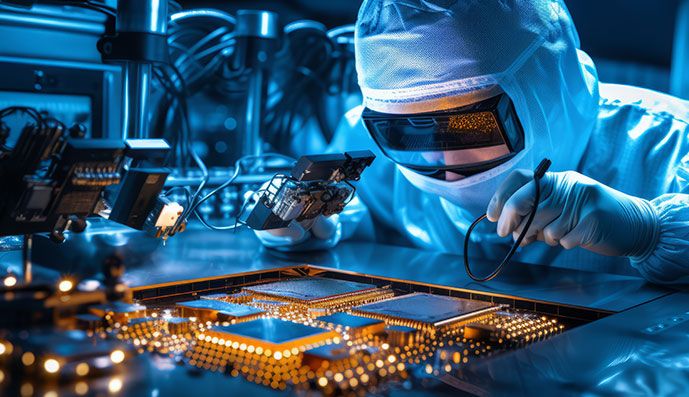Water is essential to semiconductor manufacturing, where ultra-pure water (UPW) is required at nearly every stage of production to clean and rinse wafers, ensuring they remain free from contaminants. Erik Hosler, an expert in sustainable semiconductor processes, believes that addressing water conservation is critical for the industry as it seeks to reduce its environmental impact. With global water scarcity becoming an ever-growing concern, industry is exploring innovative practices to conserve and recycle water, aiming to balance production demands with environmental responsibility.
The Role of Ultra-Pure Water in Manufacturing
UPW, often referred to as “electronic grade” water, is treated to an extraordinarily high purity level to avoid contamination in sensitive semiconductor processes. Even the smallest particle or impurity can impact the performance and yield of semiconductor devices, making UPW indispensable. Producing UPW, however, requires considerable energy and generates wastewater, which makes conservation efforts essential for reducing both water consumption and the industry’s overall environmental footprint.
Innovative Approaches to Water Recycling and Reuse
To address these challenges, semiconductor manufacturers are increasingly adopting closed-loop water recycling systems that allow for the reuse of water within their facilities. These systems treat wastewater generated during production and purify it back to UPW standards, enabling the same water to be used multiple times. This not only reduces the overall demand for freshwater but also significantly lowers wastewater discharge.
Companies are also investing in advanced filtration and reverse osmosis technologies to maximize water reuse rates, aiming to recycle up to 90% or more of their water. Erik Hosler points out, “Accelerator technologies will enable manufacturers to push the limits of miniaturization while maintaining the integrity of semiconductor devices.” underscoring how precision in production can enhance both sustainability and efficiency in semiconductor manufacturing.
Cutting-Edge Filtration and Purification Technologies
Advanced water filtration systems are helping manufacturers conserve water without compromising quality. For example, multi-stage filtration and high-efficiency reverse osmosis systems remove even the smallest impurities, allowing water to be reused at various stages of production. These technologies help reduce the need for continual water intake and align with broader environmental goals by decreasing the volume of wastewater that requires treatment before disposal.
Leading by Example in Sustainable Water Use
Through these innovative water conservation practices, the semiconductor industry is setting a positive example for other sectors. By reducing its dependence on fresh water and maximizing recycling efforts, the industry demonstrates that resource efficiency and technological advancement can go hand in hand. As companies continue to prioritize sustainable water use, they contribute not only to a cleaner manufacturing process but also to the preservation of a vital global resource.
